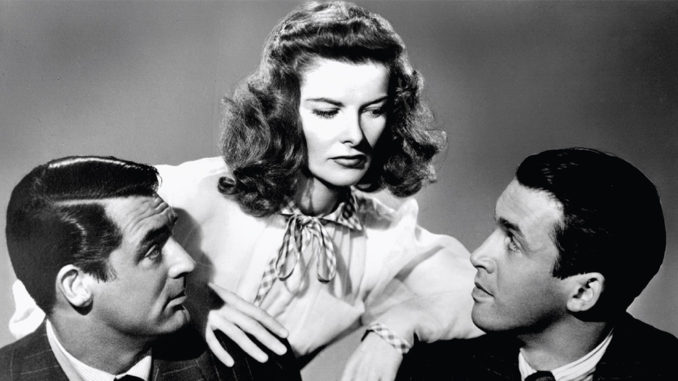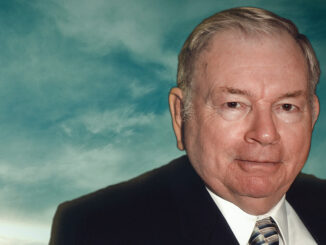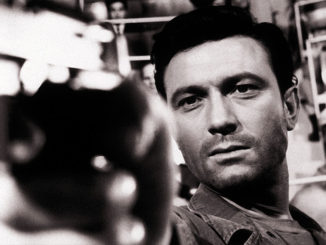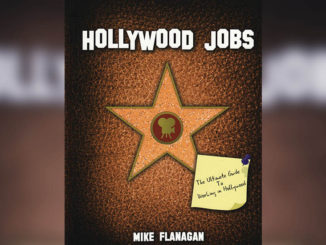
by Holly Sklar
Maybe it was fate, maybe it was luck, but somehow or other, I grew up three New York City blocks from a movie theater that showed nothing but Hollywood classics. I spent nearly every weekend of my high school years at the Regency Theater, a modest revival house on Broadway and 67th street.
Back then, unless you owned an early-model VCR or Sony Betamax, the only way to see black-and-white classics was on late-night TV, at a museum or a place like the Regency. But what a way to see ‘em. I first experienced The Philadelphia Story on a summer afternoon in 1981––with the shared pleasure of communal movie-going, and the thrill of gazing up at the six-foot-high faces of Cary Grant, Katharine Hepburn and Jimmy Stewart.
What I saw was a romantic comedy so sophisticated, smart and funny that I wanted to walk into the screen and be part of it. In the glamorous world envisioned by director George Cukor and writer Donald Ogden Stewart, the only true aristocracy is one of wit: conversation is what matters, and being able to keep up your end of it. In my humdrum adolescent universe, nobody talked like that––and I had inkling that maybe in Hollywood, I could find people who still did.
In the movie, based on Philip Barry’s Broadway play, Hepburn plays Tracy Samantha Lord, a beautiful but demanding Philadelphia heiress on the verge of marrying smug, self-made millionaire George Kittridge (John Howard) after her divorce from Grant’s wealthy, formerly alcoholic C.K. Dexter Haven, who’s still carrying the torch for her. Into the mix come Stewart as tabloid reporter/would-be serious writer Macauley “Mike” Connor and his partner/would-be girlfriend, photographer Liz Imbrie (Ruth Hussey). In story terms, the result of all this isn’t a romantic triangle, but a five-sided star. It’s anybody’s guess just who is going to end up with whom.
For Katharine Hepburn, the movie was a career saver. For me, it was the spark that started a career.
That the plot surprises you––far beyond boy meets girl/loses girl/gets girl clichés––is one of the film’s many pleasures, and one I’ve come to appreciate more now that I’m a story analyst. Lately, many scripts in the genre set their aspirations no higher than to be instantly graspable from a one-liner on a poster or DVD box. Only the British, and writer Richard Curtis in particular (Love, Actually; Four Weddings and a Funeral; Notting Hill), seem capable of executing scripts that harken back to The Philadelphia Story’s complexity.
It would be enough if the story and dialogue were all that are consistently engaging in The Philadelphia Story. But the characters grab you too. They’re shaded and subtle, their flaws gradually yet clearly revealed. And here’s the sweetest bit: They really change. Especially Tracy, whose father Lord (John Halliday) at one point tells her, “You have everything it takes to be a lovely woman except the one essential––an understanding heart. Without that, you might just as well be made of bronze.” Later, Tracy has the humility to admit, “I’ve made a terrible fool of myself…which isn’t unusual.” Tracy, Dexter and Mike learn to be more open to––and capable of––love. How optimistic, how hopeful, how quintessentially romantic a notion it is that when challenged by the right person, you can get better at loving. It’s something I deeply yearned to believe even as a teenager, when I was just beginning to make mistakes in the romance department.
The Philadelphia Story earned six Oscar nominations in 1940, and won two: for acting (Stewart) and writing. It revived Hepburn’s career; she’d bought the rights to the play (which Barry based in part on Hepburn’s family), insisted on starring in it and had the guts to ask for her choice of leads: Spencer Tracy and Clark Gable. Good thing it didn’t work out that way, or we’d never have the classic moment of Stewart singing “Over the Rainbow” as he carries Hepburn after a wee-hours dip in the pool, or Hepburn telling him, “Put me in your pocket, Mike” or Grant offering to help her save face in the climax, saying, “It’s a nice little face.”
For Hepburn, the movie was a career saver. For me, it was the spark that started a career. Beyond that, the meaning of its story is an article of faith that has sustained me in my own romantic life: the power of love to transform. But I’m still looking for the place where people talk that smart; I still want to live in that world.





